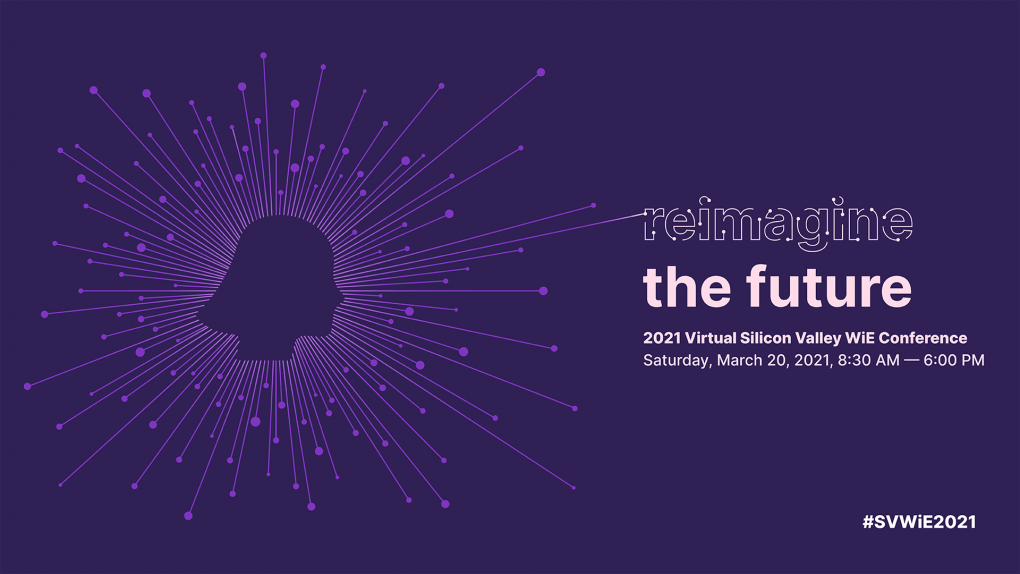Diana Knobler, ‘22 Biomedical Engineering, grew up in a predominantly Hispanic Los Angeles neighborhood, where it was rare for high school students to attend four-year universities. After arriving at San José State, Knobler was surprised to discover she was even more of an exception to the rule than she thought.
“My introductory engineering course had three times as many male students as it did female students, and even fewer Latinx students,” Knobler explained.
That’s a big reason why she decided to attend this year’s Silicon Valley Women in Engineering Conference, which will be held virtually on Saturday, March 20, from 8:30 a.m. to 6 p.m. The conference, in its seventh year, is hosted by the Charles W. Davidson College of Engineering at San José State.
The conference’s theme is “Reimagine the Future,” and the event is open to students at SJSU and other higher ed institutions who want to learn about current trends and innovations in the field.
Keynote speakers include Renée DiResta, technical research manager for Stanford Internet Observatory; Ann Lee-Karlon, senior vice president of Genentech; and Jessica J. Marquez, human-systems engineer for NASA Ames Research Center. They will speak on how to detect misinformation on social media, new advances in biotechnology and future trends in space technology.
Attendees can choose from 12 technical talks about emerging technologies and six professional development sessions. They can also mingle with representatives from more than 50 Silicon Valley companies—including sponsors Google, IBM, Netgear, Lam Research and several others—during the conference’s Innovation Showcase.
The overall mission is to educate students, provide them with potential mentors and role models, and to create a community for women engineers in the Silicon Valley, according to Belle Wei, the Carolyn Guidry Chair of Engineering Education and Innovative Learning.
“Women are a minority in engineering classrooms—less than 20 percent of students in an engineering classroom are women,” said Wei, who serves on the conference committee.
“All of these speakers are highly accomplished women professionals,” she continued. “We want them to see that these women have worked hard, had a strategy, persevered and have been successful.”
Many of the students who attend the conference are in a position similar to Knobler’s. Jinny Rhee, conference chair and associate dean of undergraduate programs and student success for the College of Engineering, said attendees often come from underrepresented groups or are first-generation college students.
“So they might not have some of the support structures and infrastructure that other engineering students may take for granted,” Rhee added. “We want to allow them to reimagine the role engineering can take in a developed society. Engineering is there to make the world a better place, and we don’t want anyone to lose sight of that.”
Knobler does want to make the world a better place: She plans to one day introduce life-changing medical devices into the health-care field. After her first semester at SJSU, Knobler joined an engineering and technical sciences sorority, The Beta Upsilon Chapter of Alpha Omega Epsilon, and she said having a female support system has made all the difference.
“Being connected to so many amazing women through this conference feels like the first step to building an industry-level support system,” Knobler explained. “I hope to use the knowledge I gain from these women to become successful in the industry myself and one day return to do the same for [the next generation of] young female engineers.”
Laura Guio, ‘86 Marketing, is doing just that. When she entered the engineering industry more than 30 years ago, there were not many women to whom she could look for inspiration and guidance.
“Fast forward to today, and there are more women tech leaders, but not as many as I would have expected by this point in time,” said Guio, who now serves as general manager and executive for IBM. “As a woman technology leader and an SJSU graduate, I feel it is my responsibility and privilege to talk about my experience and encourage others while sharing my journey.”
Guio will talk about her experiences during a panel discussion on developing career strategies. Rhee and Wei want to see female students persist in their engineering careers long after graduation, but that doesn’t always happen.
“We know a lot of women leave technology fields soon after they graduate for various reasons, and that’s a shame,” Rhee noted. “The research says that the stronger your engineering identity, the more likely you are to get your degree and persist in the field after you graduate.”
They will ask attendees to complete pre- and post-event surveys to better understand how the conference can play a role in fostering that strong identity.
Guio said she wants attendees of the conference to know there are plenty of opportunities for success and many ways to pursue them.
“Everyone’s journey is their own, and you have to know yourself, your skills and what drives and motivates you to begin to understand the path you want to take,” Guio said.
“Technology needs diversity in representation, which brings diversity in thought. Studies show if you have a diverse mix of talent, this will improve performance and success. Most of all, I want to encourage these students to push forward, dream big, but take it one step at a time.”
To learn more about the conference, visit 2021.siliconvalleywie.org.

